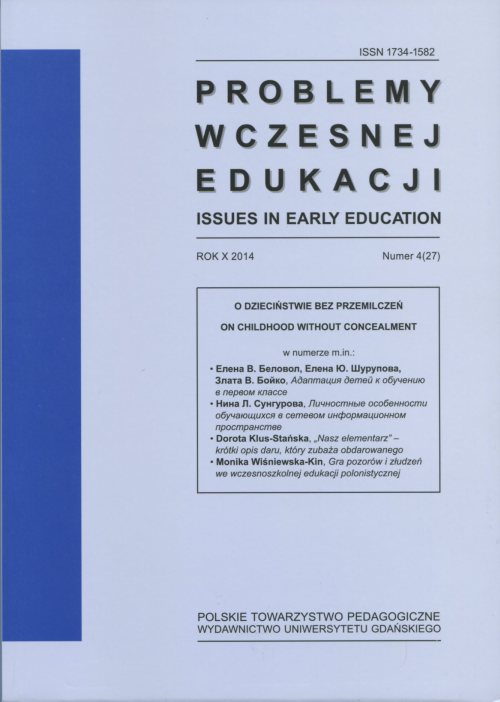Za zamkniętymi drzwiami klasy szkolnej – przemoc werbalna w komunikacji nauczyciela z dziećmi
Słowa kluczowe:
komunikacja, wczesna edukacja, przemoc werbalna, socjalizacja, interakcja werbalna, interakcja w klasieAbstrakt
During communication in early childhood education, the teacher may adopt a fully dominant role in speaking in the classroom. He manages verbal space by agreeing to or refusing the possibility of speaking up, therefore socializing children to function in a structure of power and control. In order to verify the above statement I observed classes in the grades of early education in 3 public elementary schools in a large provincial town in the school year 2013/2014. The observation was aimed at the use of language situations that bore signs of teacher verbal violence against children. The aim of my research was to find out what means of verbal violence teachers of early education use in their communication with pupils and in what situations they do it. On the basis of observations, I singled out several kinds of situations, where a teacher used language to prepare children to function in a reality of subordination to authority, such as: teacher drill, action “in the school way”, the cult of formal correctness, the cult of silence, and the facade of appearances.

 Uniwersyteckie Czasopisma Naukowe
Uniwersyteckie Czasopisma Naukowe





